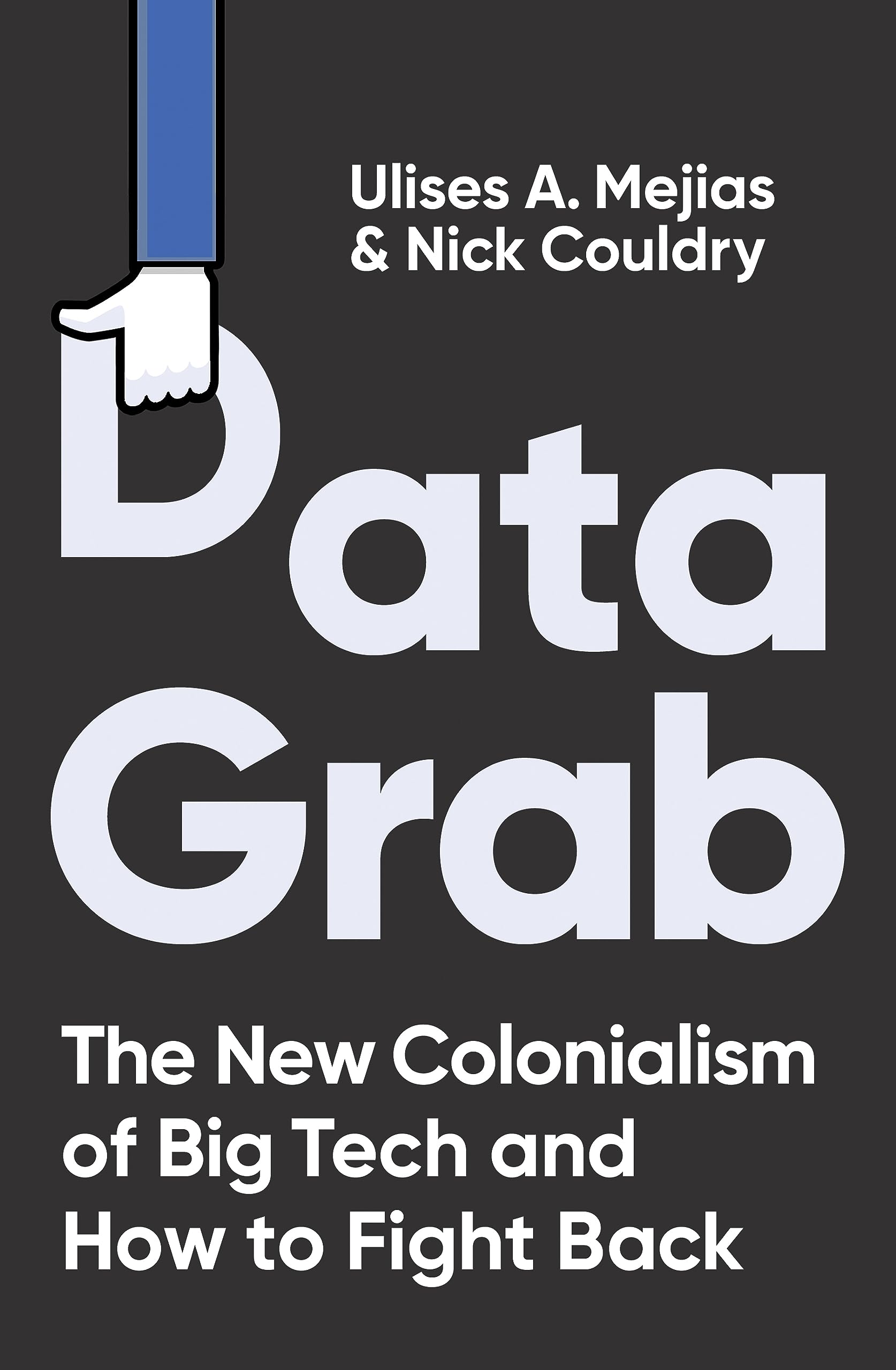I came to this book because I have been following the work on data colonialism by Mejias & Couldry for some years, without ever taking the time to engage with it in a deep way. Hence, I thought this book provides a good opportunity to read up on their central arguments. While this book won't provide as many new insights if you work/research such data-related questions on a daily basis, it nonetheless does a very good job of conveying their concept of data colonialism and serves as a brilliant introduction to the broader problematics posed by digitalization today. For that reason, I warmly recommend this book. I will try to summarize some of its key points that interested me.
The introduction acquaints us with the book's mission which, simply speaking, consists in situating the history of current digital data production and analysis practices within longer histories of colonialism. So, for example, the chapter outlines the "Four X's" of colonialism: explore, expand, exploite, exterminate. The argument is that today Big Tech does all these things with the "virtual territories of our datafied lives" (p. 5). They stake out six similarities between data colonialism and historical colonialism: 1) both appropriate the world's resources; 2) in both, appropriation serves to build a new social and economic order; 3) this is the joint work of states and corporations; 4) this has a disastrous effect on the environment; 5) this generates deep inequalities; 6) there are always 'civilising' narratives that serve to hide the unacceptable facets of colonial practices.
The first chapter, "A New Colonialism", argues that today's digital lives can only be understood within the framework of colonialism. The authors then claim that there can be no capitalism without colonial tendencies, linking the two. For example: "It was colonialism that allowed European protocapitalists (merchants, artisans, landlors, etc.) to clear peasants off the land, accumulate capital, increase production and hire wage workers qucikly, all with the support of their respective states" (p. 30). They suggest: "Capitalism has always had a colonial gene within it." (p. 32). Today, rather than merely re-enact historical colonialisms violence, "data colonialism makes possible novel forms of symbolic violence, such as those that come with discrimination, loss of opportunity and the classification of people into disadvantageous categories by AI and its algorithms." (p. 39). The authors further point to some of the colonial roots of AI.
Chapter two shows some of the ways in which our social lives have become "data territories" for all kinds of extractive activities by firms and states.
Chapter three recounts some of data colonialism's civilising narratives.
Most interestingly, chapter 6 offers a "Playbook of Resistance" that shows ways to 1) work within the system; 2) work against the system; and 3) work beyond the system. This provides a brilliant overview of some efforts that have been directed against the uglies facets of data colonialism.
All in all, again, a very nice overview that I would recommend to all those interested in these topics. Moreover, it will primarily find future reference for its brilliant overview of possibilities for resistance.

